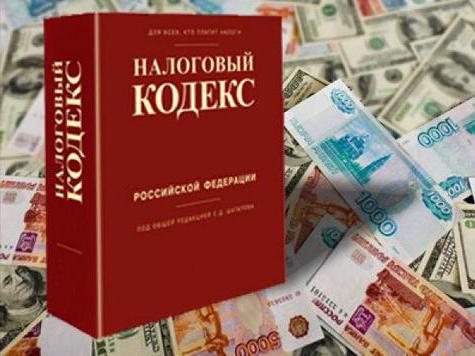In Russia, there are a lot of marriages and divorces. The latter every year more and more. Therefore, some are increasingly discussing a divorce tax. Is he there now? What are the consequences of this payment? What does the current legislation of the Russian Federation say on this issue?
Source of problem
On the territory of the Russian Federation in recent years, statistics indicate that the institution of the family is falling apart. Citizens are in no hurry to get married or get divorced soon after marriage.
A tax on divorce in the Russian Federation is what worries many. The news that this payment will become mandatory upon termination of officially registered relations still excites the population. The initiative was designed specifically to highlight the importance of family preservation. After all, the amount of tax for the mentioned action is called significant. About her a little later. To begin with, let's figure out whether you really have to face taxes or not.
Tale or myth?
Is there a divorce tax in the Russian Federation? In 2017, he is not. This is just another fairy tale, a way to intimidate citizens in order to keep the family to the last. Therefore, you will not have to face any taxes. Under current law, every citizen can not only marry, but also terminate it.
If the second spouse does not agree, then it is worth going to court. And no one can forbid a divorce. The exception is when a husband wants to divorce his newly-born wife. In this situation, only a woman has the right to act as a plaintiff. A similar rule is valid until the child reaches 1 year.
Tax Replacement
How much is a divorce tax in Russia? As we have already said, divorce is not taxable. But citizens will have to pay a state fee. It is often called tax.
In 2017, couples are charged 650 rubles. This is the size of the fee by mutual agreement. If the action is done through a court, then you will have to pay 350 rubles. But such a process takes much more time.
Tax initiative
For the first time, a divorce tax was discussed openly in 2013. It was then that the population was informed that divorce could be subject to significant fees.
However, such a proposal has not yet found support. Firstly, it contradicts the current legislation. Secondly, preserving the institution of the family in this way is unlikely to succeed. Anyone who wants to get a divorce will do so even if there are high fees.
The meaning of taxation
Why was a divorce tax invented? The government believes that it is the increase in the divorce rate that will lead to deliberation of its decisions. In addition, it will force citizens to learn to compromise and make concessions to each other.
It was assumed that with the help of a high tax for terminating previously concluded relations, the so-called alimony fund will be created. With its help, children from divorced families will be supported.
Dimensions
What divorce tax would you like to introduce? Its size was remembered to all citizens only by the maximum amount. Namely - 30,000 rubles.
In fact, such a duty, if introduced, will make divorce impossible for most families. More precisely, it will be possible to terminate relations, but with significant damage to their own budget. No concessions are provided for families with children.
But in fact, the initiative initially consisted in the usual increase in state fees by at least 400 rubles upwards. These payments vary from year to year. Therefore, over time, a divorce will cost more, but not 30 thousand rubles.
About the consequences
Any innovation should be well designed. Indeed, rash laws and regulations have serious consequences. Divorce tax is one such solution.
Even now, the termination of official relations is a lot of trouble. And this is subject to the absence of minor children. It is difficult to predict the consequences of introducing a transaction tax.
However, there are several theories. If the "income tax" on divorce is introduced, then in Russia the following changes may occur:
- increase in the number of victims of domestic violence;
- increased crime and increased beatings in the family (for example, in dysfunctional families);
- complete destruction of the institution of the family;
- lack of official marriages per se;
- the prevalence of criminally punishable methods of separation.
It is also possible to maintain the legal status of the family, but with the actual creation of a new unit of society under the guise of civil marriage. In fact, no taxes will help preserve the institution of the family. After all, the problem is not at all the availability of divorce. Before introducing such a collection, you need to delve into the essence of the problem.
About Divorce Statistics
Why are families falling apart? What can the state do to solve the problem of divorces? Tax is not an option. And its consequences have already been said.
Many get divorced due to the lack of a separate living space. Young families are forced to live with their parents, which destroys their marriage. Housing for newly minted cells of society, even with existing state support programs in Russia, often remains unavailable.
Also, a huge number of divorces are observed on financial grounds. A man cannot provide for his family himself, a woman is forced to work, and after work, to take up the “second shift”. It is about household life. When a child appears, financial problems only worsen. The family is heating up, which leads to divorce.
Some disagree due to the excessive interference of the older generation in the newly made family. The problem becomes especially noticeable after the advent of children. Grandmothers literally crowd out young mothers and dictate their upbringing rules. Newly made families are poorly protected from such an influence.
And only then there are problems of character incompatibility, depreciation of the family as such (for a spouse, for example, it is more important to meet friends than spend time with children and wife), bad habits. If you eradicate at least the first 2 problems, the number of divorces will be significantly reduced. Indeed, in financial well-being, spouses are more accommodating and less conflicting.
Network Horror Stories
"The tax on divorce from January 1 .... year will take effect!". Such a statement can be seen on the Internet.
This news, as we have said, makes many citizens nervous. Some generally make the final decision on divorce before the introduction of the mythic tax. The bill is not approved, it is not adopted, but news about it is already destroying families.
In fact, the payment mentioned is nothing more than a horror story. State duty for divorce takes place, but its size can be called affordable. In the near future, its increase is not planned. And certainly there can be no talk of taxes.
About Divorce Taxes
Upon divorce, all spouses' property acquired during the marriage must be divided. Typically, the principles of this act are prescribed in a marriage contract. In the absence of such a section is made by the court. But sometimes spouses can decide everything mutually and amiably, without resorting to the judiciary.
The division of taxes during a divorce is not performed in Russia. But you can file a lawsuit to split the loan taken by one of the spouses in the marriage. This is a fairly common occurrence.
findings
Divorce tax is a myth. A fairy tale invented to intimidate the population. There was an initiative to introduce such a payment, but it did not find support.And even a significant increase in state fees for terminating family relations was not supported.
Accordingly, there is nothing to fear. Divorce, like marriage, should remain accessible to everyone. Otherwise, there will be a violation of civil human rights in Russia.
How much is a divorce tax? Speaking of state duty, it is recommended to focus on 650 rubles. This is the main payment faced by citizens. And only sometimes can one hope to reduce the state duty to 350 rubles. Fees are charged to each spouse.
In reality, everything is simpler than it seems. There is no evidence of a significant increase in divorce rates. Therefore, you should not think that you will have to pay a lot for the mentioned operation.